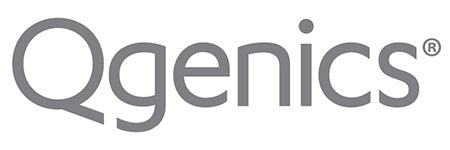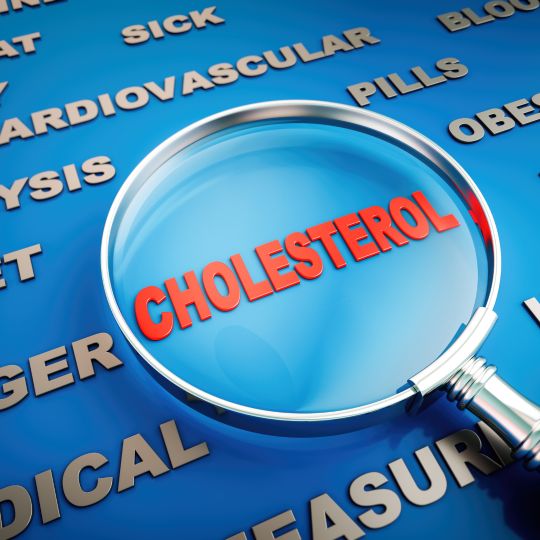When doing a lipid profile blood test, current conventional wisdom says that total serum cholesterol should be below 200 mg/dL. The guidelines also say that LDL cholesterol should be less than 100 mg/dL.
However, Dr. Caldwell Esselstyn, who has worked with thousands of people in the prevention and reversal of heart disease says, “Even if all Americans kept their total cholesterol below 200 mg/dL, as recommended by the American Heart Association, millions would develop coronary artery disease.”
So, we are taking a closer look at the question of how low should cholesterol really be.
What is cholesterol?
Cholesterol is part lipid (fat-like molecule) and part protein.
Cholesterol is essential and helps the body in a number of ways, including building and maintaining cell membranes and converting sunshine to Vitamin D in the body. Cholesterol also insulates nerves. The body uses cholesterol to make the lining of the nerves (called the myelin sheath), which is similar to a protective coating around an electrical wire.
While cholesterol is necessary, too much cholesterol in your blood is harmful for you. It can enter your artery walls and lead to the formation of plaque (hardened deposits.)
This plaque buildup is called atherosclerosis and can end up blocking the blood flow to your heart (coronary artery disease), blocking the blood flow to your legs and arms (peripheral artery disease), and blocking the blood flow to your brain (carotid artery disease.)
Why is LDL Cholesterol Considered “Bad” Cholesterol?
LDL is often referred to as “bad” cholesterol. LDL stands for Low-Density Lipoprotein. A lipoprotein is any of a group of soluble proteins that combine with and transport fat or other lipids in the blood plasma (fluid). Low-density lipoproteins (LDL) carry cholesterol throughout the body, delivering it to the different organs and tissues for use by the body’s cells.
If your body has more cholesterol than it needs, the excess keeps circulating in your blood. This can cause a build-up of cholesterol on the vessel linings (plaque.) This is why it’s called “bad” cholesterol.
What are Ideal Total Cholesterol and LDL Cholesterol Levels?
Dr. Esselstyn says that “Strong evidence from a wide variety of sources shows that total serum cholesterol levels must be kept below 150 mg/dL to stem America’s epidemic of coronary artery disease.” He goes on to say the closer LDL cholesterol can be to 80-85 or lower, the better.
What’s the most efficient way to naturally lower cholesterol?
This is one of the most frequently asked questions when people discover their cholesterol is too high.
The good news is there a natural way to lower cholesterol in a relatively short period of time.
The Cholesterol Lowering Power of a Plant-based Diet
Plants are very low in saturated fat and free of cholesterol. Plants are also rich in soluble fiber, which helps lower cholesterol. Soluble fiber slows the absorption of cholesterol and reduces the amount of cholesterol the liver produces. Basically, the more vegetables, fruits, potatoes, and other naturally-fiber-rich plant foods you eat, the better.
Dr. Esselstyn recommends adopting a plant-based diet with fats making up less than 10% of calories.
The idea of a plant-based diet is supported a University of Toronto study that found that people eating a plant-based diet rich in special cholesterol-lowering foods lowered their LDL cholesterol by nearly 30 percent in just four weeks. These foods included: Oats, beans, barley, and other foods high in soluble fiber.
Plant-Based Nutritional Supplementation to Support Lower Cholesterol Naturally
Nutritional supplements are valuable if you are trying to achieve better health naturally. Here are the potential benefits of some natural ingredients:
Rice bran may reduce total plasma cholesterol.
Chromium Picolinate can improve carbohydrate and lipid metabolism.
Folic Acid (Vitamin B9) has the potential to improve heart health by controlling the cholesterol levels in the heart.
Grape Seed Extract (GSE) may support normal cholesterol levels.
Malic acid may improve high cholesterol.
Resveratrol may help lower LDL cholesterol because of its antioxidant properties.
Vitamin B12 can help normalize cholesterol levels.
Vitamin E can help regulate cholesterol.
Note: Please consult with your healthcare provider before making any major dietary or lifestyle changes.

